New city builder Generation Exile is a shot across the bow for both strategy game design and the gaming industry at large: 'It's simply not possible to keep expanding forever'
Unveiled at the PC Gaming Show, Generation Exile is about "finding ways to grow and thrive" without endlessly extracting more resources from the environment.
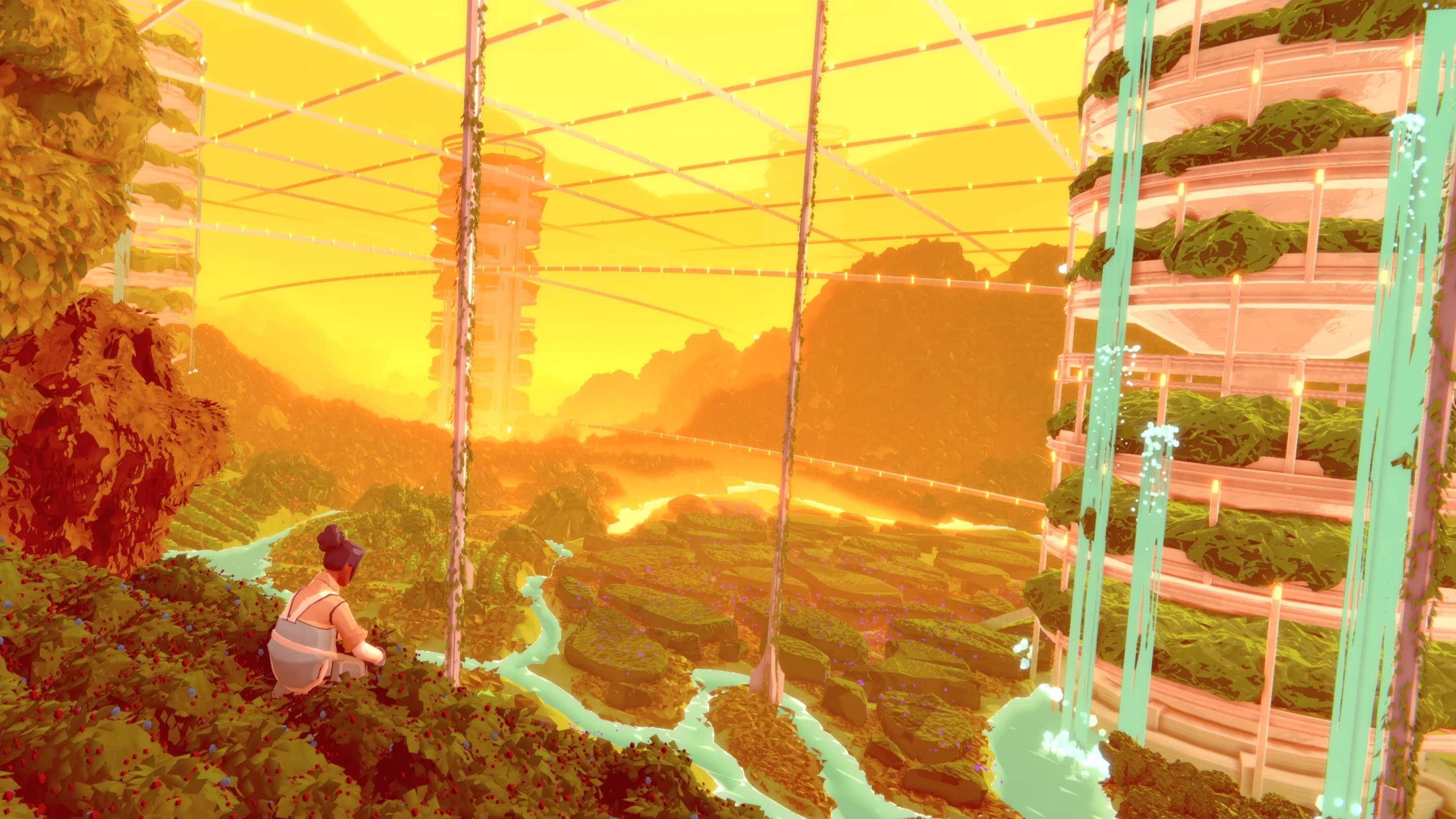
Nels Anderson is about to pitch me on why Generation Exile—a new narrative-focused, solarpunk city builder about keeping humanity alive on a colony ship hurtling through the darkness of space—is philosophically different from current city builders, other strategy games, and kinda, like, life on Earth as we know it.
Yeah yeah yeah yeah, you've heard countless ambitious game pitches before that oversell and underdeliver, but I promise this one's nowhere near as highfalutin as it might sound. Generation Exile, first shown off today during the PC Gaming Show, doesn't look radically different from strategy games you've played before, but there is a quiet streak of radical optimist sci-fi at its heart.
"You're still having to provide the basics for your society: Food, shelter, clean water," Anderson says. "But there's this kind of unquestioned assumption that lives in a lot of strategy games, but also in the world around us, where it's like: 'Oh, we need more resources? We can just keep extracting. We can just keep taking more forever. We can just keep growing and growing and growing.' It's simply not possible to keep expanding forever.
"That is both a thematic element of the game, but I think part of that has come from looking at the industry around us. We see the harm that's caused by focusing exclusively on short-term gains, where all the goals are 'what are the returns for the next quarter?' or whatever. That single-minded focus on what's immediately ahead of us—how can we extract as much value in the short term—is just not sustainable. And it doesn't have to be that way! That's a choice. That's not the 'natural order of things.' That's a decision made by people every day. And we want to anchor a lot of the city building, strategy game stuff in not just getting bigger and consuming more stuff, but finding more ways to be more efficient. More effective. To use only what you have around you, because that's all you've got. And finding ways to grow and thrive, but in a way that is not just endlessly extractive."
I don't know about you, but this idea for a game makes me want to stand up and clap even before we get into how the indie team at Sonderlust Studios will pull it off. It's a small but seemingly crack group of developers, including Gone Home's Karla Zimonja (who started her career working on Zoo Tycoon, incidentally) and narrative lead Marri Knadle, who served as a writer on the last few Far Cry games. Beyond those philosophical underpinnings, Generation Exile is taking a roguelike approach to replayability. Each 'run' is your attempt to manage the fate of a generation ship on a multi-year journey through the stars, headed towards a better future on another planet after we've gone and wrecked the earth.
Science's last-ditch attempt to rescue earth's ecology backfired and ravaged what was left of the planet instead, and unbeknownst to your crew also infected the generation ship. (We could call this blight an allegory for late-stage capitalism, but for "gameplay" it's probably helpful to have a slightly more concrete obstacle to work against). Despite having a god's eye view of the generation ship's interior, which is divided up into some very pretty hexes, you inhabit the role of a specific character, a ship's administrator with relationships with other folks about the vessel. Those interpersonal interactions will inform how the story of your generation ship plays out, as the specialties and personalities of your crew affect what actions you can take (and how happy they are when you take them).
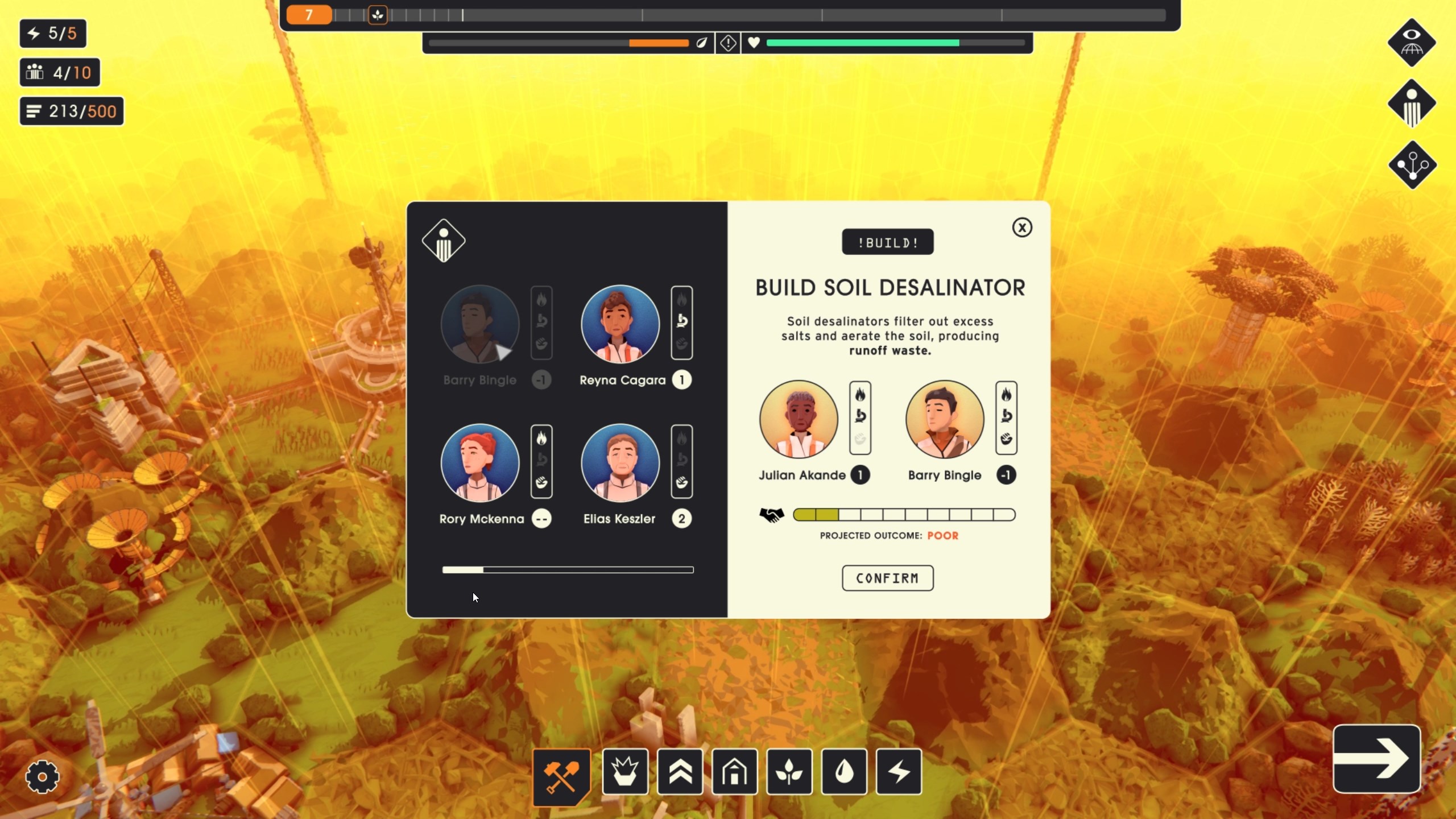
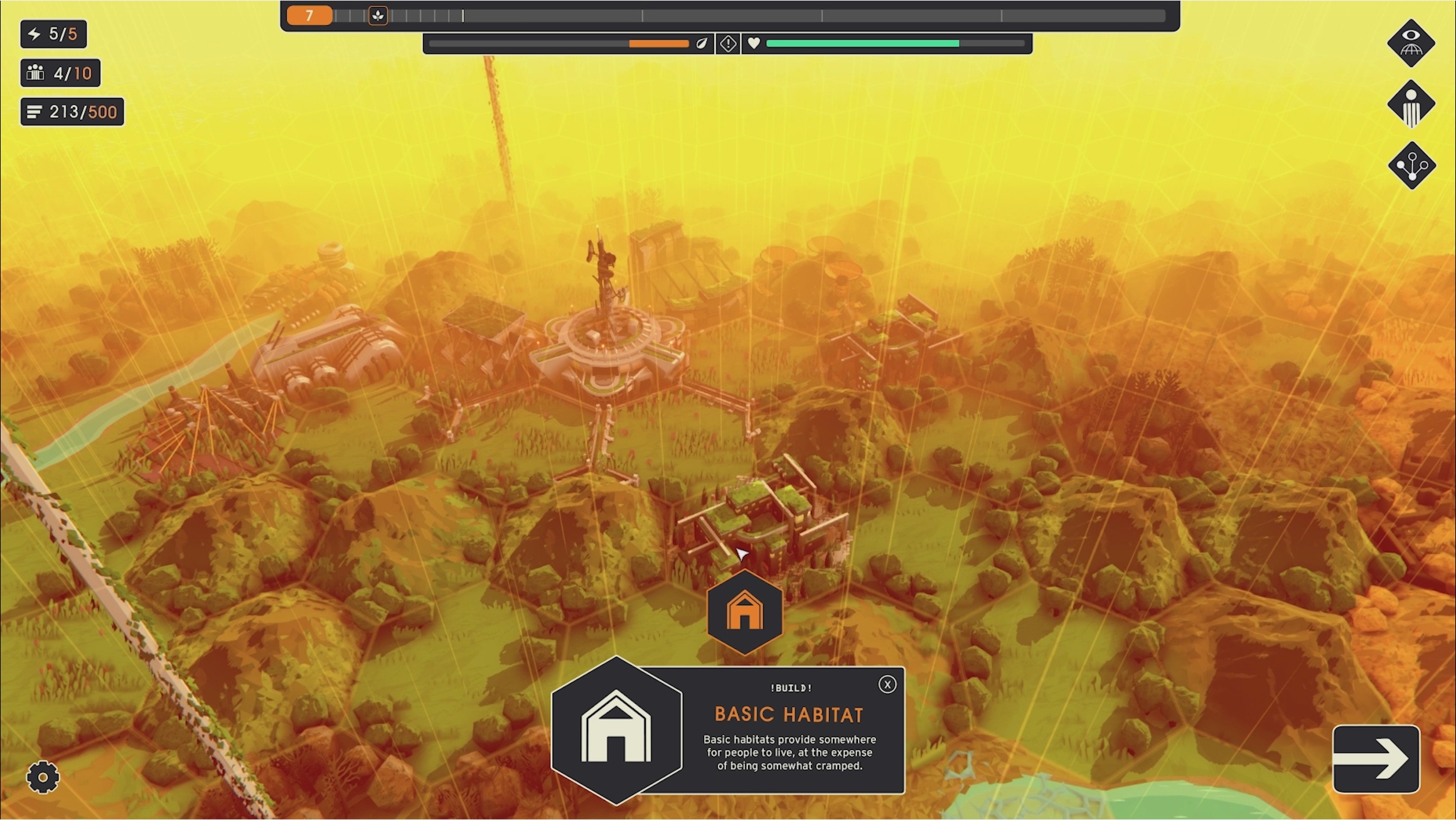
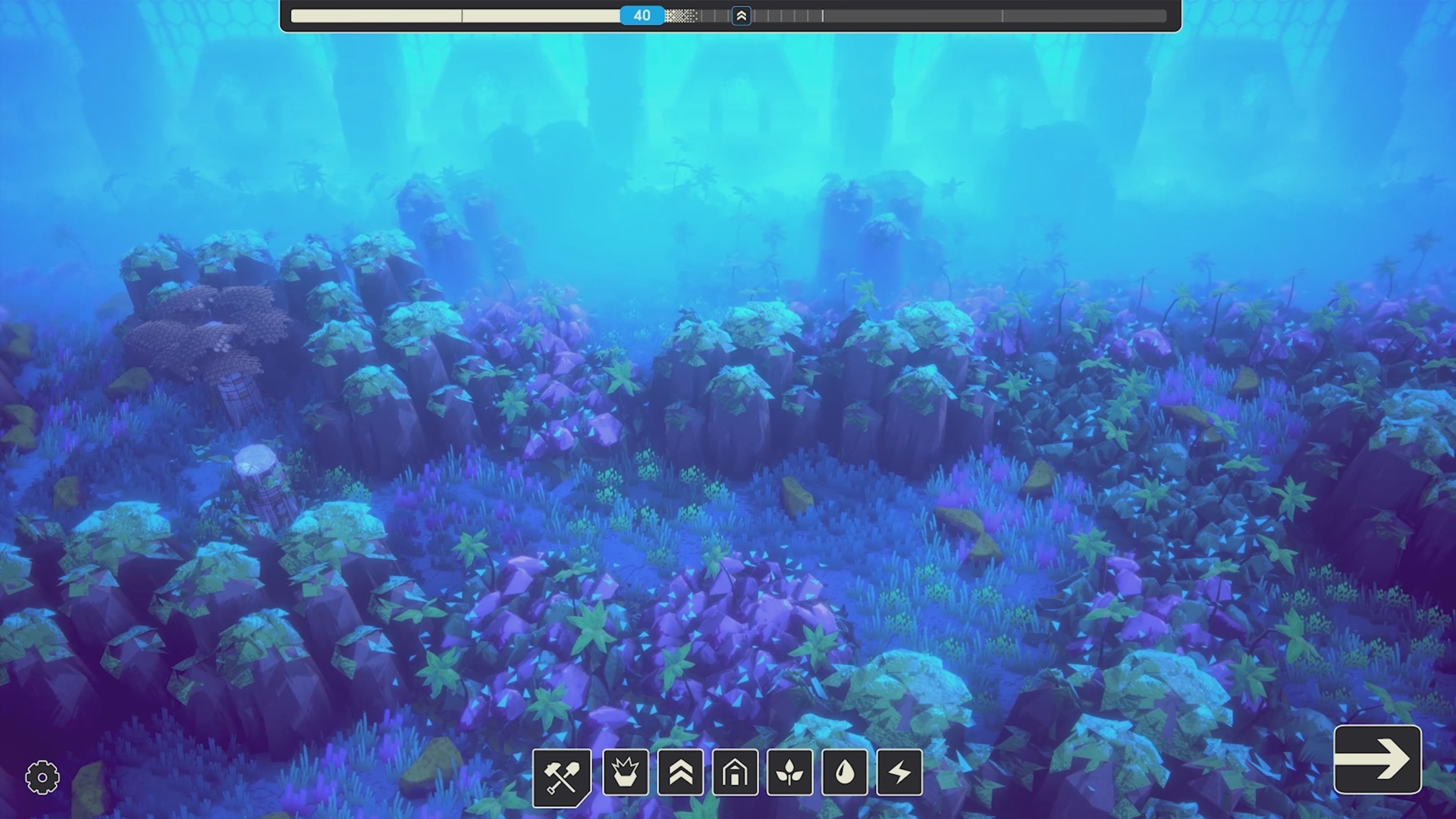
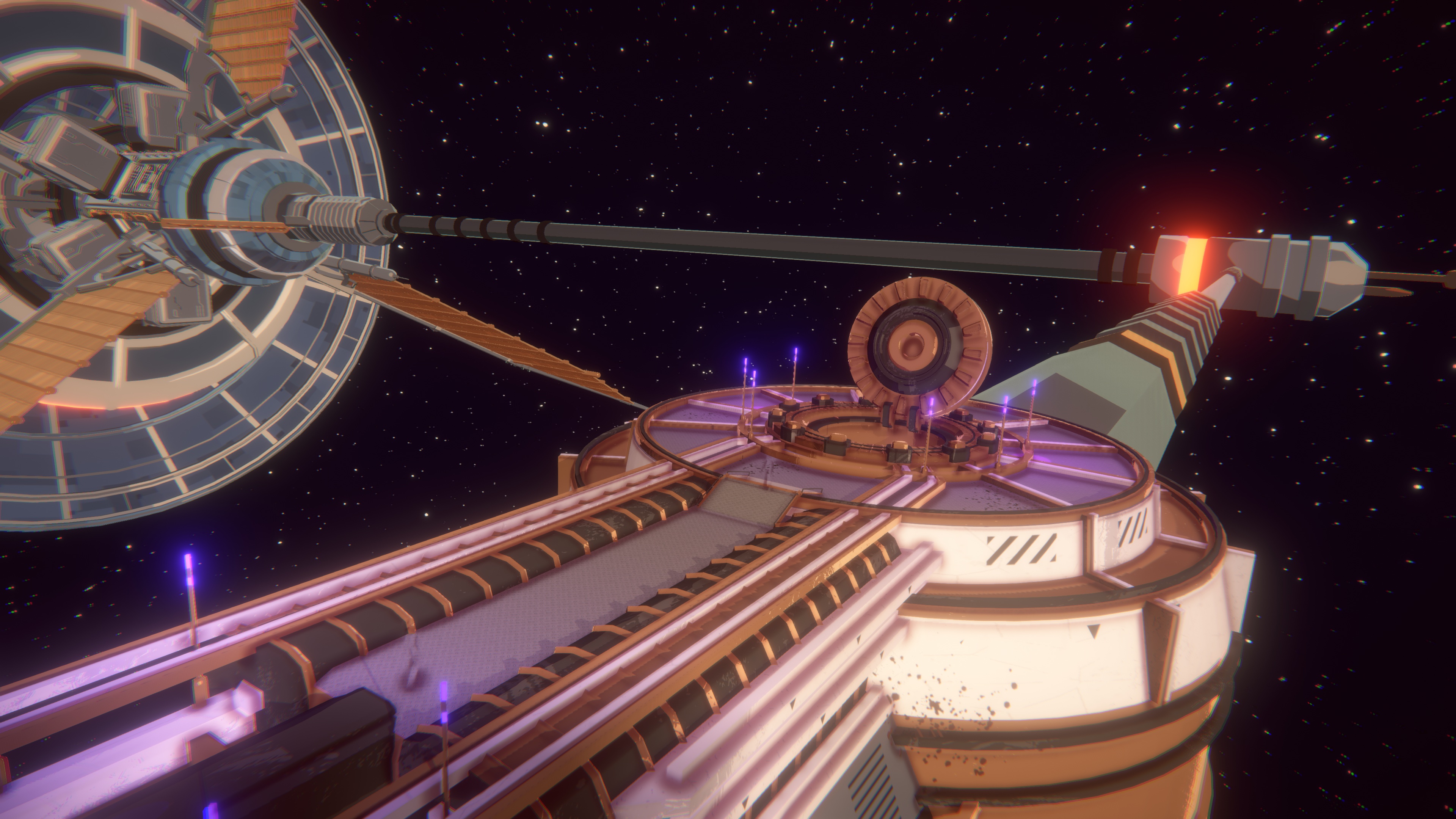
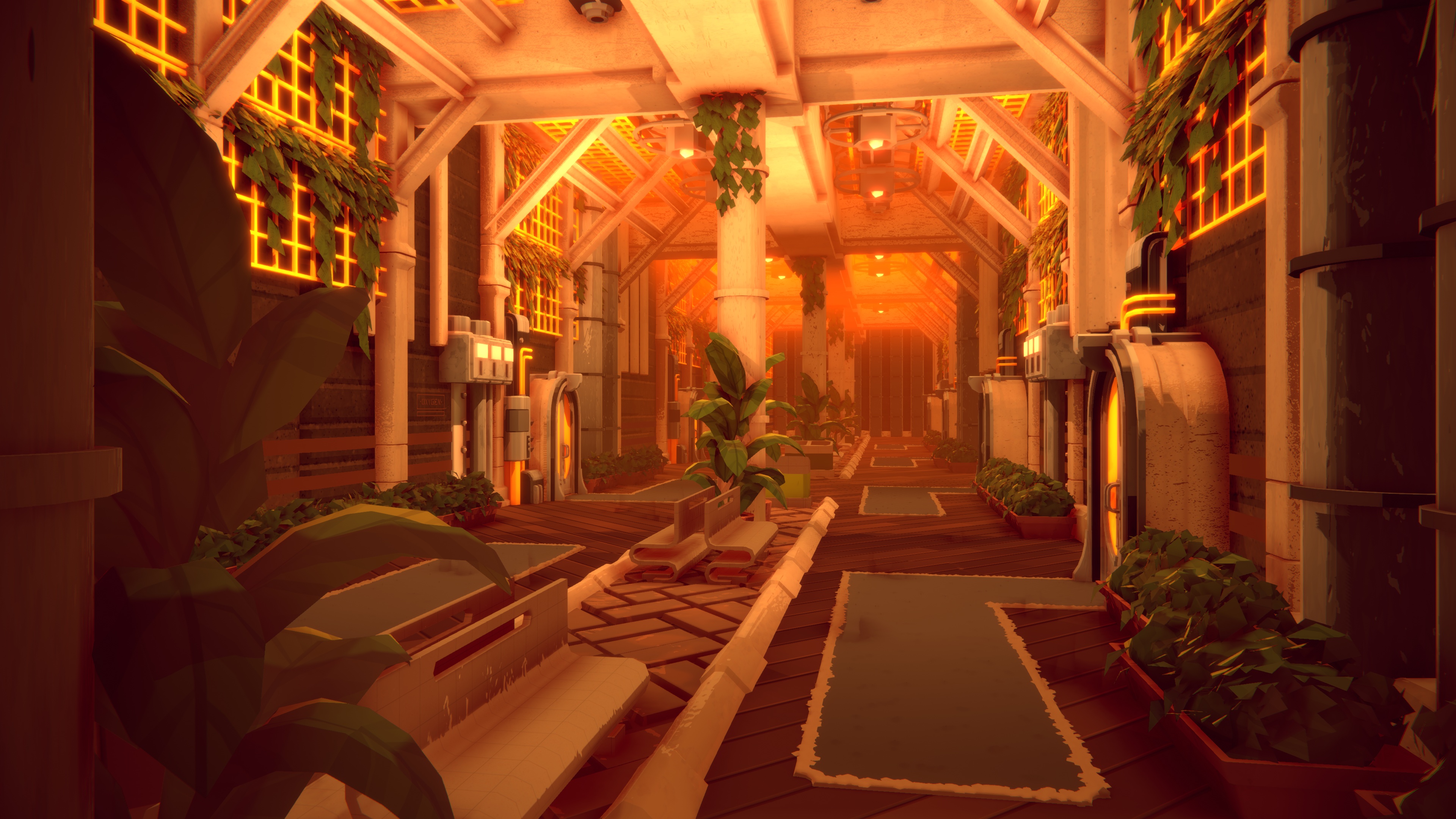
Rather than plopping down buildings abstractly with the almighty power of your mouse cursor as in most city builders, you'll actually give orders to your crew to go out and build things, and their personalities and specializations can have positive benefits or generate complications as they complete the task.
The biggest gaming news, reviews and hardware deals
Keep up to date with the most important stories and the best deals, as picked by the PC Gamer team.
Building on the kinds of player-driven stories we love in sprawling simulations like Civilization, Sonderlust is also trying to do a lot of that storytelling through the way your decisions drive the generation ship's evolution. As the lead designer of Mark of the Ninja (one of the most elegant stealth games ever made) and part of the team that made Firewatch, I'm inclined to believe that Anderson has a pretty good idea of what he's talking about when it comes to weaving together clever game systems and storytelling.
"We wanted to take a relatively recognizable set of city building mechanics, which tend to be very known, very satisfying, very rich—I love city builders—but have more narrative and story elements in there as well," he says. "The thing that is so rich about city builders is that they're so systems-dense. There's so much 'game state' in there, and that game state is very much driven by the choices and decisions the player is making, both moment-to-moment and broader, higher level strategy. Rather than everyone playing through the game and at turn 15 this thing happens, and at turn 25 this thing happens, instead we've been authoring a whole heap of narrative events that are reactive to whatever choices you've made."
Sonderlust designer Matt Gambell offers a concrete example. Generation Exile keeps tabs of things like what buildings you've placed, how many of a specific structure (or total structures) exist on the map, and with that information the team can choose to trigger specific events. Something appears in the environment as a result of what you built; a random story kicks off related to a character in a house you just built; an event happens because you built a water capture facility. In turn, the choices you make in narrative events will feed back into your built environment.
Anderson says they want Generation Exile to be satisfying on the basic city building level, delivering on that feeling of pride you get when you lay out your civilization juuuust how you like it, while also leaning into bonuses and synergies from smartly placing structures together. "Not only is that useful and appealing on the city building level, but also, because these three structures are adjacent to each other, that can create some condition in that area of the map, which can then be a trigger for certain narrative events that are about the things that are happening—like the buildings [becoming] infested," he says.
Gambell adds that "pretty much everything in the game is tagged with traits," from tiles to characters to your own actions.
"The designers have access to that information and can tie certain narrative events to very specific, bespoke things that may only pop up on 5% of playthroughs that only a few people will see, vs. some things that are maybe more common in the game because we think they're interesting choices, and everything in between. Depending on the choices that you're making—or just the dice roll you got, because certain traits exist in this map layout that didn't exist in the previous layout you played—you'll experience a different series of narrative situations and choices you have to make as a player."
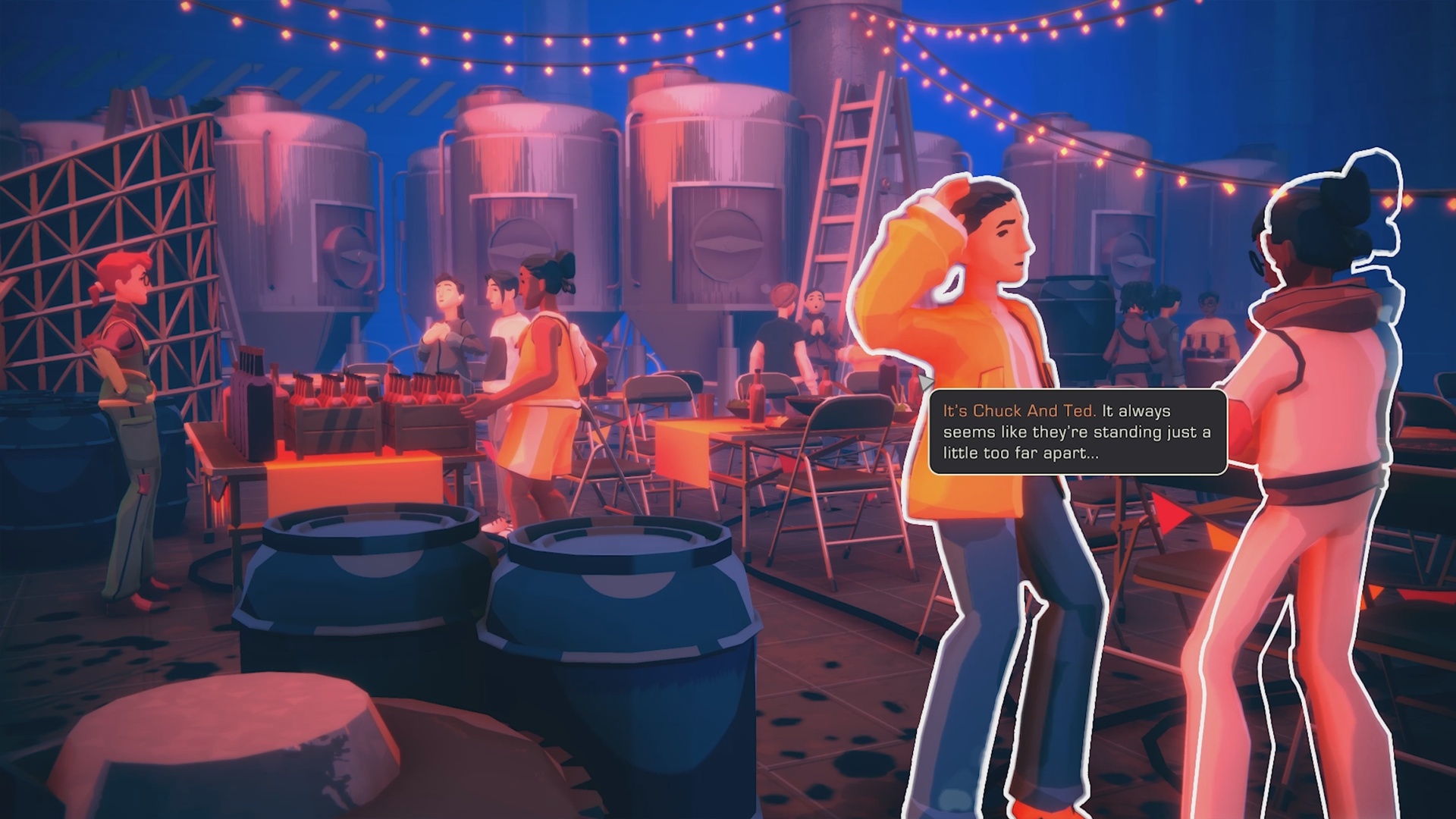
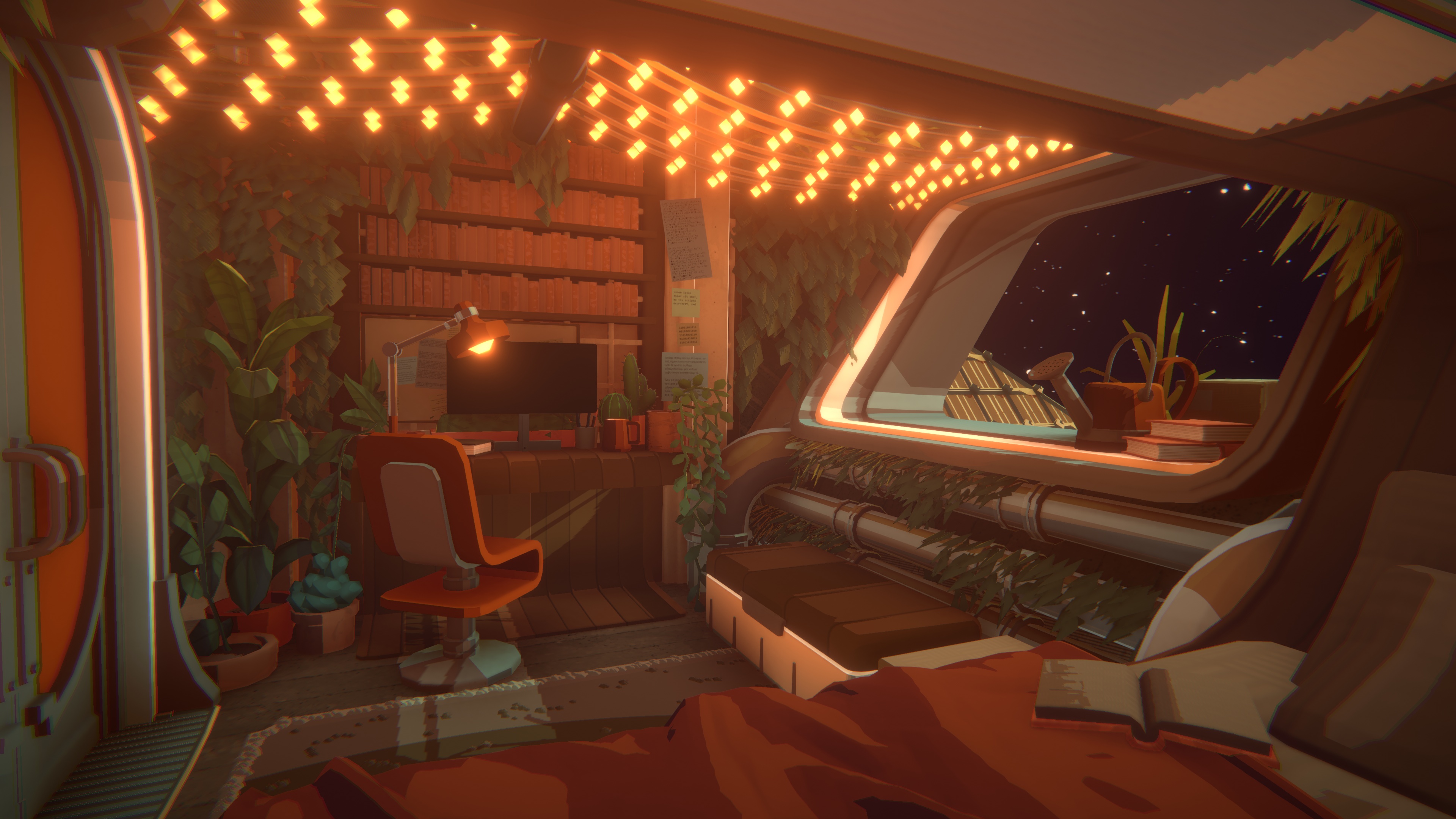
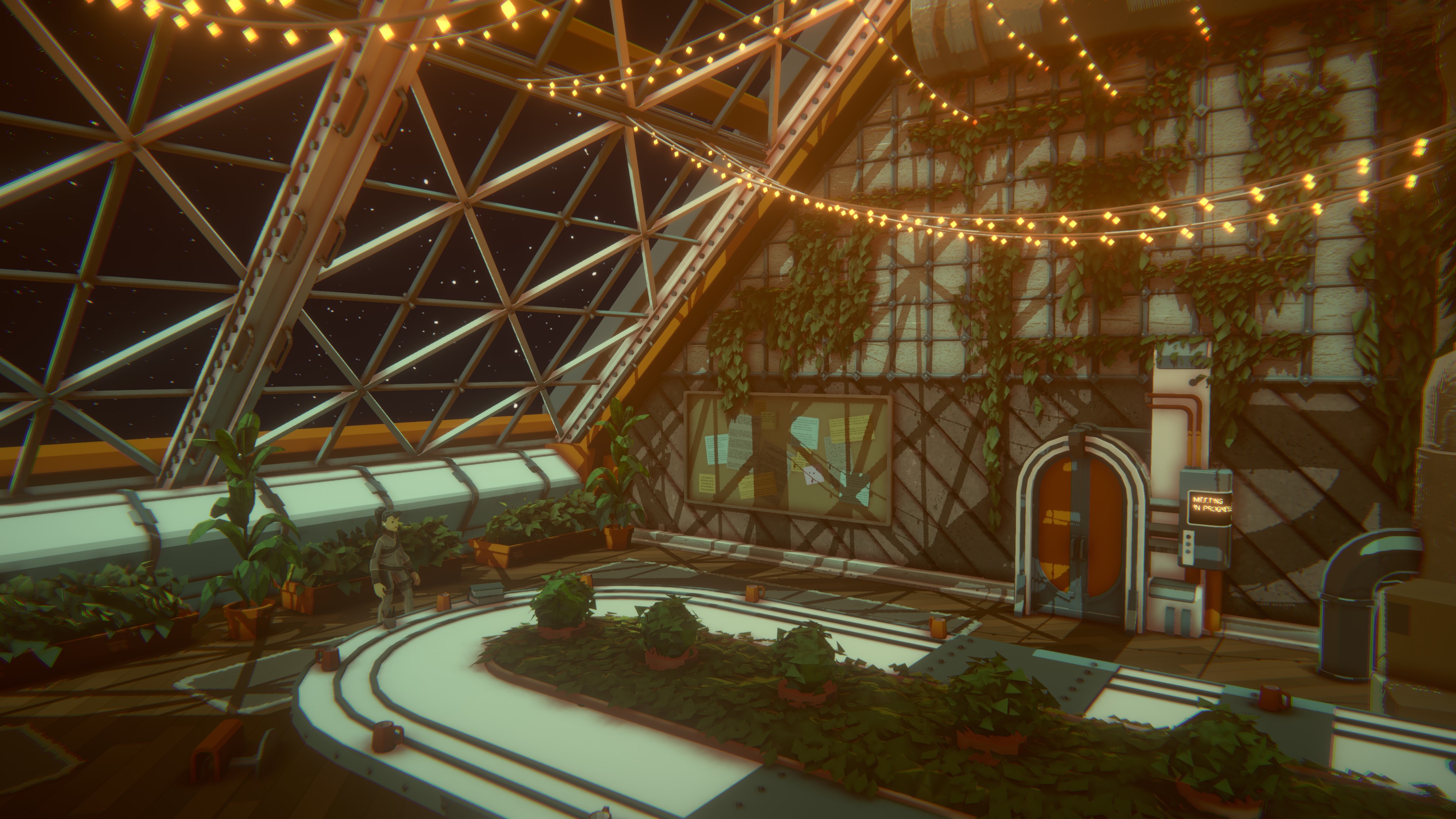
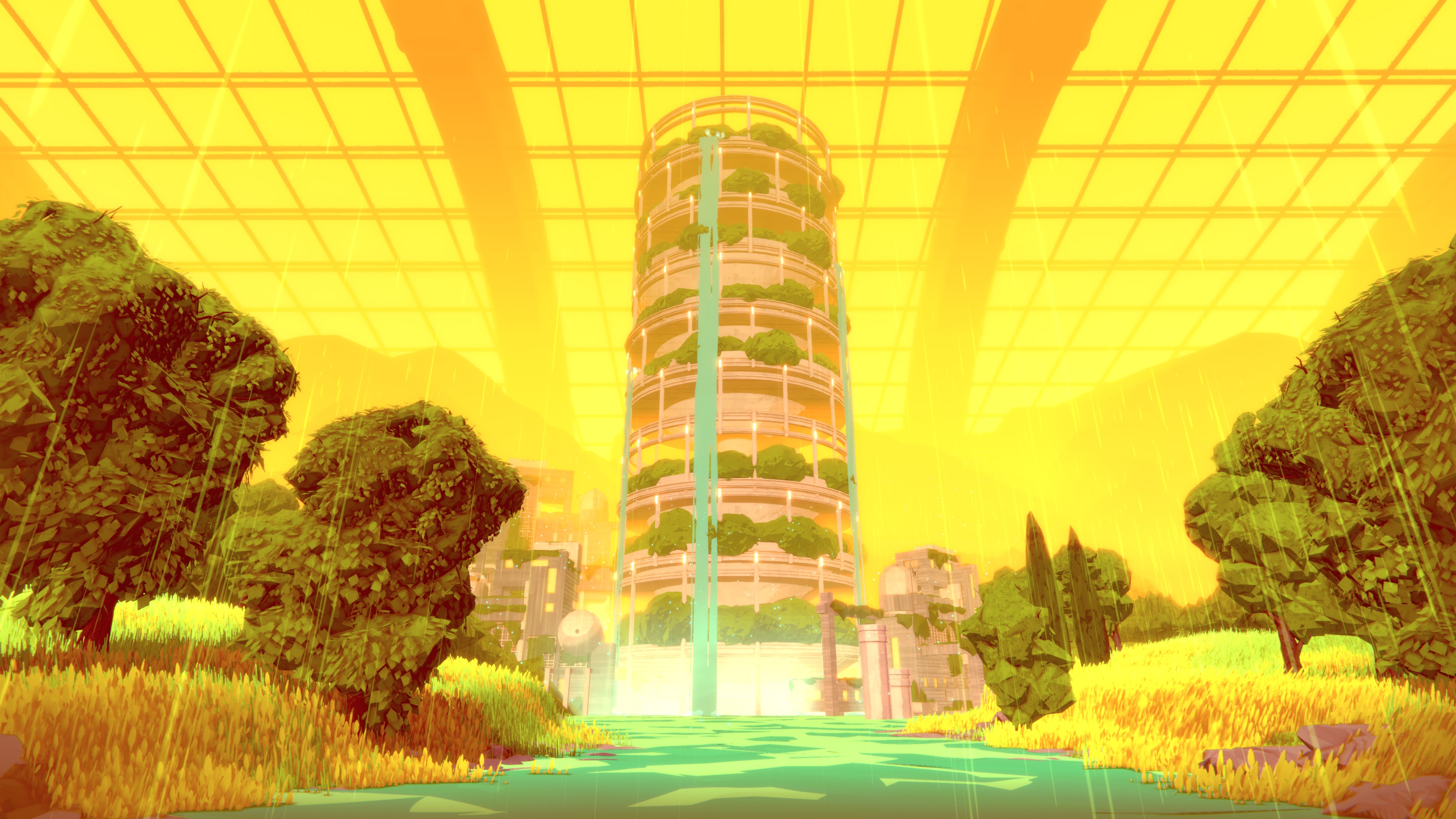
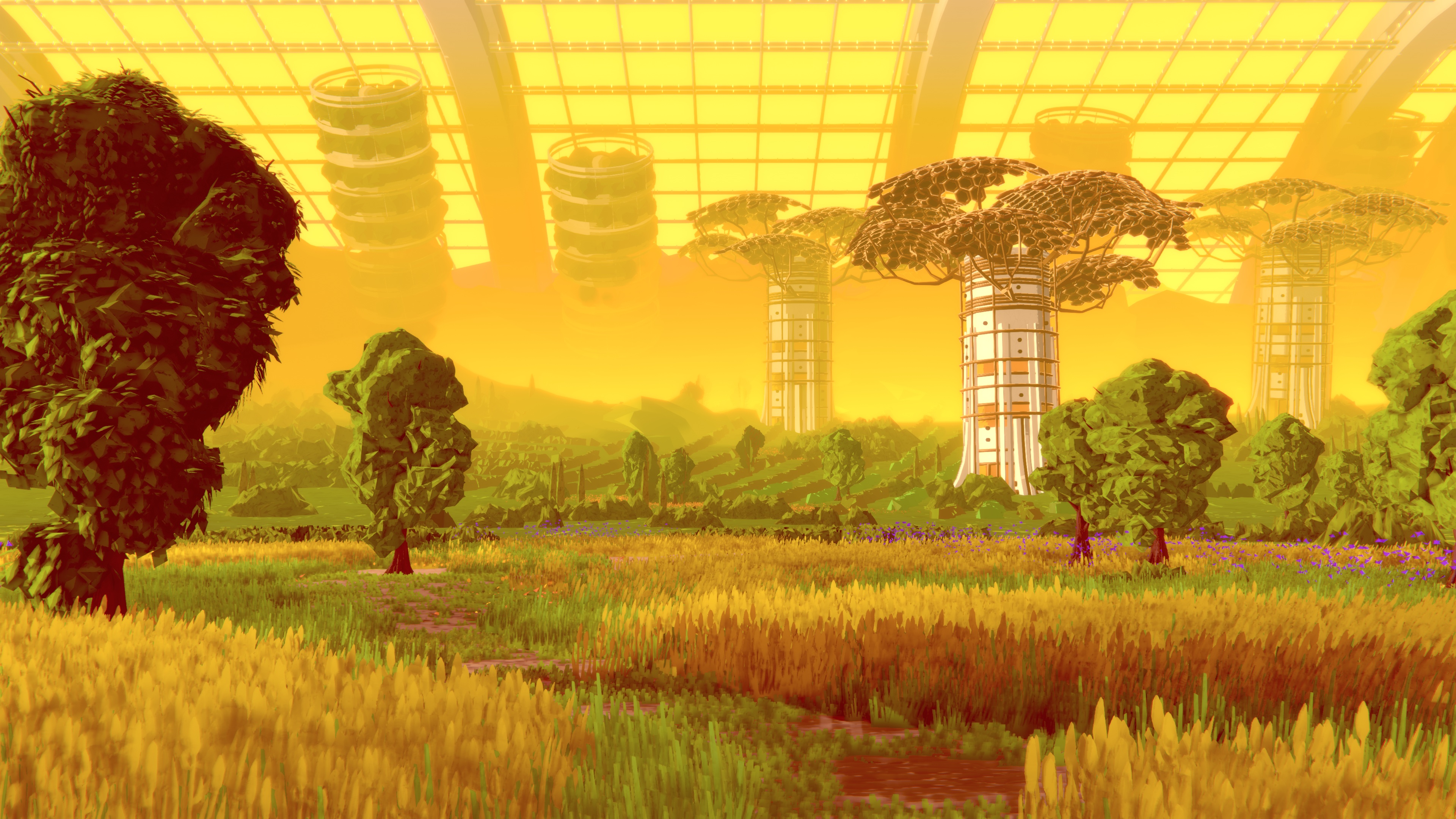
If those events and narrative moments do end up feeling personal from run to run, I could see Generation Exile doing for the City Builder what Old World did for the 4X, with a focus on characters and events that added much richness to broader strategic choices. But it also just sounds downright refreshing to play a strategy game that doesn't revolve around expansion and infinite resources, taking some of the ideas that last year's Terra Nil played with a step further.
"In a lot of future-oriented fiction, the future imagined is a little rough, a little grimdark, a little every-man-for-himself," says Karla Zimonja. "When you think about it, it's hard to imagine how you could keep humanity going in that way for particularly long. Ultimately your job in Generation Exile is to shepherd humanity successfully to the destination planet. There's so many ways you can screw that up. You're on a spaceship: you've got what you've got. Your population has to grow, because otherwise, how are you going to make it on the destination planet? But without just being like, 'we'll go a little further, we'll just Manifest Destiny a little more into the distance and get a few more of those resources'—because there aren't a few more of those resources. So it has to be a little more thoughtful."
Generation Exile doesn't have a release date just yet, but you can find it on Steam now (or very soon) and more on the official site. And in the meantime, maybe check out author Kim Stanley Robinson's novel Aurora, a hard sci-fi book about a generation ship that served as inspiration.

Wes has been covering games and hardware for more than 10 years, first at tech sites like The Wirecutter and Tested before joining the PC Gamer team in 2014. Wes plays a little bit of everything, but he'll always jump at the chance to cover emulation and Japanese games.
When he's not obsessively optimizing and re-optimizing a tangle of conveyor belts in Satisfactory (it's really becoming a problem), he's probably playing a 20-year-old Final Fantasy or some opaque ASCII roguelike. With a focus on writing and editing features, he seeks out personal stories and in-depth histories from the corners of PC gaming and its niche communities. 50% pizza by volume (deep dish, to be specific).

